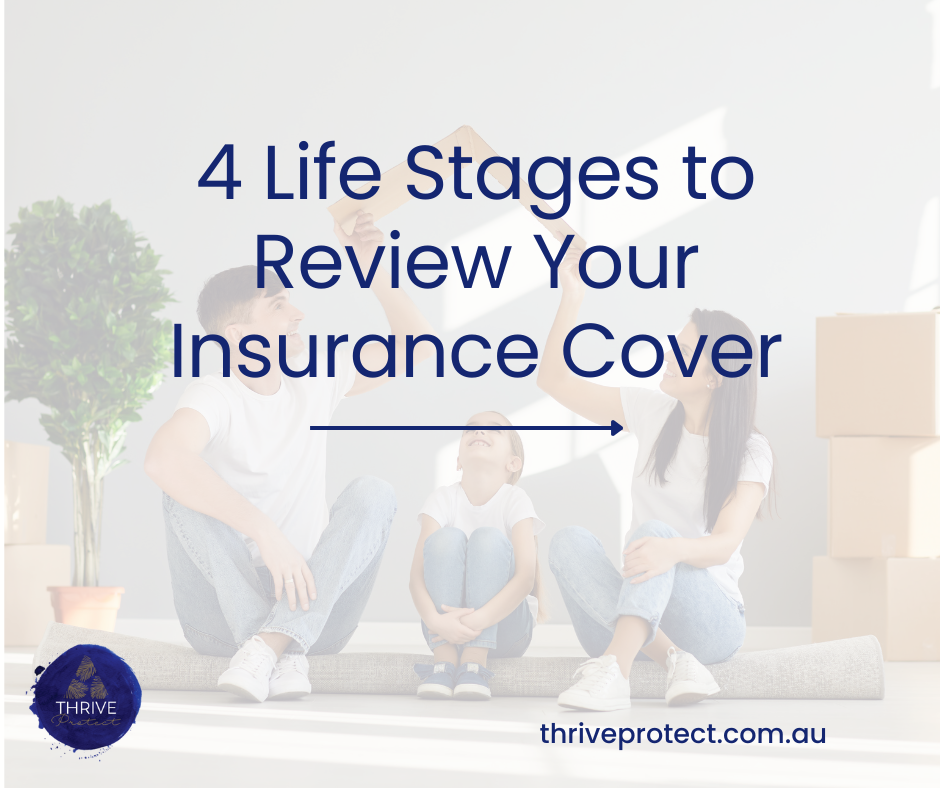Introduction
When it comes to protecting your income and assets, did you know that certain types of insurance can be held inside your superannuation fund? Many Australians don’t realise that some cover can be structured this way, making it easier to pay premiums directly from your super balance. But which insurance policies can be held inside super, and what are the key considerations? In this article, we’ll explain the types of cover you can hold inside your super and the things you need to be aware of when structuring insurance within super.
⚠️ The following information is general in nature and does not take into account your personal circumstances. Consider seeking personal advice before making any decisions.
✅ Types of Insurance You Can Hold Inside Super
There are a few different types of cover that can be held inside your superannuation fund, making insurance more affordable and manageable. These include:
- Life Insurance (Death Cover)
Life insurance inside super provides a lump-sum payout to your beneficiaries in the event of your death or terminal illness. Premiums are paid from your super balance, which can ease the financial burden of managing insurance payments. - Total and Permanent Disability (TPD) Insurance
TPD inside super generally uses the “any occupation” definition, which means that you must be unable to work in any occupation to claim the payout. While it can be more affordable, the coverage might not be as broad as an “own occupation” TPD policy (which is typically not available inside super). - Income Protection (Salary Continuance)
Income protection insurance inside super provides regular income payments if you become temporarily disabled and unable to work. However, income protection within super often has limitations, such as a capped benefit period (usually up to 2 years) and reduced tax deductibility on premiums.
🚫 Types of Insurance You Can’t Hold Inside Super
While superannuation can hold certain types of insurance, not all policies can be structured this way. Here are some types of cover you cannot hold inside super:
- Trauma (Critical Illness) Insurance
Trauma insurance, which provides a lump sum if you’re diagnosed with a major illness (e.g., cancer, heart attack or stroke), is not allowed within superannuation due to superannuation laws. - “Own Occupation” TPD Insurance
“Own occupation” TPD cover, which pays out if you cannot work in your specific job, is typically not available within super for new policies. Instead, policies inside super will likely use the more restrictive “any occupation” definition.
⚖️ Things to Consider
Before opting to hold insurance inside super, here are a few important factors to keep in mind:
- Premiums Reduce Your Super Balance
While paying premiums from your super balance may be convenient and easier on your cashflow, it also reduces your retirement savings, potentially affecting the amount of money you’ll have in retirement. - Limited Cover Definitions
Super-owned policies may use stricter definitions, such as “any occupation” for TPD insurance, which could limit the payout conditions. - Release Conditions for Claims
Even if you’re entitled to a payout from your insurance provider, you’ll need to meet the superannuation release conditions (such as incapacity – temporary or permanent – or death) before funds can be accessed.
💡 Final Thoughts
Insurance through super can provide a useful safety net as part of your overall protection plan. However, it’s important to review your cover regularly to ensure it still aligns with your needs, stage of life, and financial goals.
If you’re interested in learning more about how you can structure your insurance policies to be linked with super or managed within an SMSF, be sure to check out our other blog on how insurance can be structured with superlinked policies and SMSFs.
For more information on how insurance inside super works, visit the Australian Government’s MoneySmart website:
👉 https://moneysmart.gov.au/how-life-insurance-works/insurance-through-super
⚖️ General Advice Disclaimer
The information on this website is of a general nature only and does not take into account your objectives, financial situation, or needs. You should read the relevant Product Disclosure Statement (PDS) and consider obtaining personal advice before making any financial decisions.
At Thrive Protect, we believe understanding your options is the first step toward protecting what matters most. We specialise in helping Australians find the right balance between affordability and flexibility across different types of insurance — always within a general advice framework





